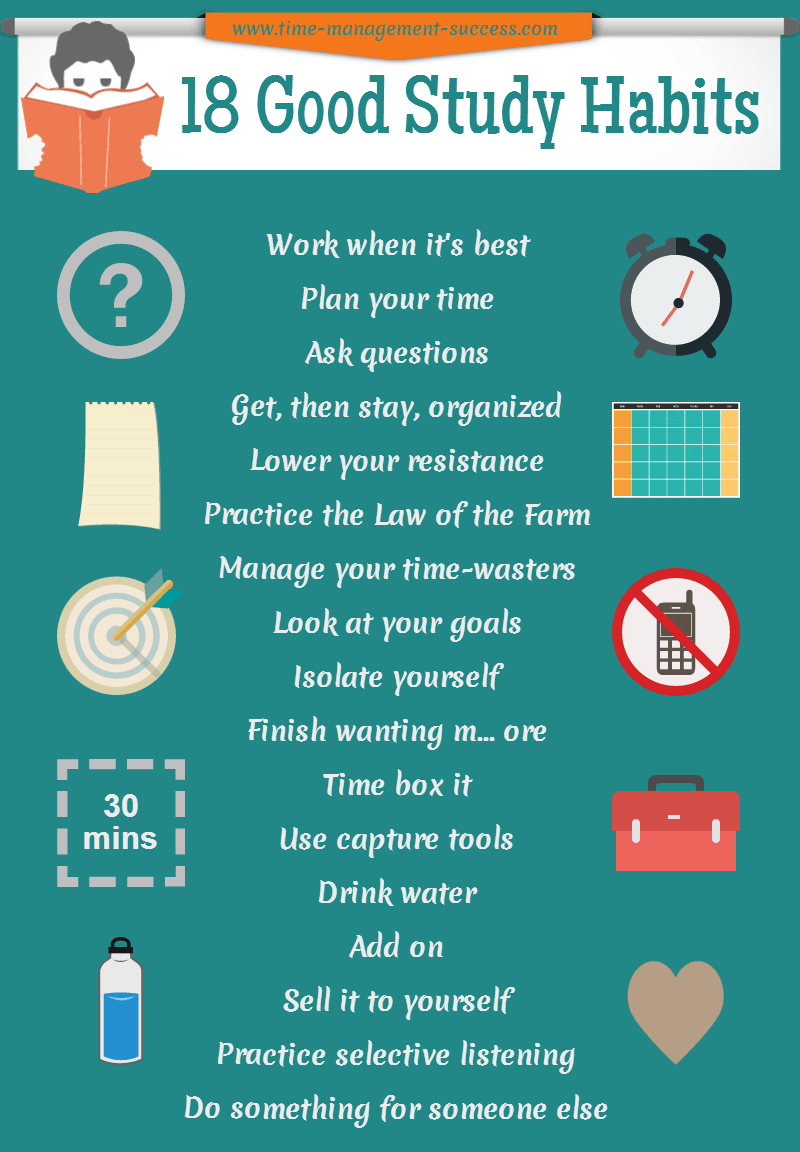

The following are the top 10 study habits employed by highly successful students. We also believe that the vast majority of successful students achieve their success by developing and applying effective study habits. If you follow these simple financial tips, you won't have to worry about your money in the meantime.At the Department of Engineering Department we are committed strongly to student success. Remember to have fun and graduate without any regrets. Last but not least, remember that college is a time for you to try new things when you have very little at stake. Just learn about the markets, how fees impact your investments, and stick primarily with funds inside a Roth IRA. You'll be tempted by all the robo-advisors and alternative investments but avoid that temptation because it's adding complexity before you're ready. You are a student first but your education must include a little bit of how investing works. Learn the ins and outs of investing using a Roth IRA but leave everything else for after graduation. They are tax-free retirement accounts that take post-tax money. While in college, if you have income, take advantage of Roth IRAs.
#Good student habits how to#
Saving money will start your nest egg but investing will enable it to grow.īuilding wealth requires learning how to invest and you can do so with very little these days. You can now make decisions from a position of financial safety rather than one of panic. With a fund, you can avoid putting those charges on a credit card.

This is when the emergency fund can step in. What if you go to drive it one morning and discover it won't start? Or your tire hits a nail on your drive home the night before? While minor, these are emergencies that you won't have accounted for in your budget. As you get older, get more responsibilities, the number of potential emergencies increases.įor example, if you own a car, you will rely on it to get you to and from work. While you're in college, these emergencies will be minor.

This fund protects you if you ever have to deal with an immediate or urgent financial emergency. When you have a little extra money, put it towards an emergency fund. Build a Small Emergency FundĪn emergency fund is a pot of money you keep to the side for a rainy day. Once you get the hang of it, you can do it after graduation when you hit the real world. Since your financial life is simple, for now, this budget will be easy to set up. The goal is to get into the habit of building and tracking your budget.
#Good student habits free#
There are also plenty of free tools to help you do this and one of the most popular is Mint. There are many ways to create and track a budget. As the month progresses, you track how you're doing against your budget. With a spending plan, you try to forecast how much you are spending each month in a variety of categories. Budgeting is when you create a spending and saving plan. Create a Budgetīudgeting is a life skill that is easiest when you have a limited financial world. Building credit does not require you to carry a balance. If you are paying off your credit card bill every month, you are building credit without paying huge interest and financing charges. How does this tip fit with the first one? When I say avoid credit card debt, I mean carrying a balance and paying interest. If you're able to establish a budget, spend less than you earn, and stay away from revolving credit card debt, you will be much farther ahead of your peers. They're often in the mid to high double digits! It's insane. You can avoid that!Ĭredit card debt can hold you back financially for years, if not longer because the interest rates are so high. Student loans are almost unavailable.īut credit card debt is different. Fortunately, student loans have favorable interest rates and there are government programs that can help you pay it down. If you go to an expensive school, it's difficult to avoid student loan debt.


 0 kommentar(er)
0 kommentar(er)
